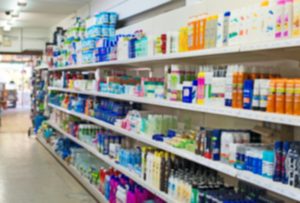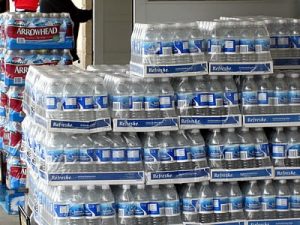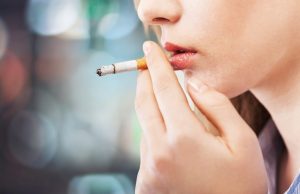How one soap bar remained to be just a simple body soap and the other, the same type, has become my all-purpose bathroom cleaner, all-purpose kitchen cleaner, including cleaning oven and pans, floor cleaner and hand clothes washer.
Following the realisation,that plastic for packaging is not a good idea and that it is somehow painful seeing endless rows of plastic packaging in the majority of shops, I decided to do something about it.
First: I thought of going to replace my hygienic liquid soap in a plastic container. I went into my local Waitrose supermarket and looked for a simple soap bar. The rule was: it must be wrapped in a simple paper only and no cellophane paper. A simple Dove soap bar for 80p drew my attention. The look of its packaging satisfied my needs.
Then I noticed an organic Senspa one, that was packed in a colourful, printed shiny paper, but no cellophane. I went for this one too – It costed me £3.95 per bar. Eventually I ended up with quite a few of those soap bars. My plastic bottle soap was successfully replaced by a soap bar.
Suddenly I had an idea to use the Dove bar to clean the sink and bath. I equipped myself with an abrasive sponge and an abrasive wire scrubber. Holding the soap in my left hand, I made it lather and then I transferred the lather onto the abrasive side of my cleaning sponge, that I held in my right hand. The amount of lather was enough. It worked. My bathroom wash basin and my bath looked sparkling clean.
The smell of the Dove soap was getting too intensive. Maybe I need an unperfumed one, I thought. I had to be happy with what I had got then and there, I reached out for the Organic Senspa soap bar. When I unwrapped it, the scent was exquisite. I did the same. I lathered the organic soap bar in my rubber gloved left hand and I transfered the lather onto the sponge that I held in my right hand. I started cleaning my small bathroom floor and tiles. Then the door was cleaned. Everything ended up looking sparkling clean and smelling exquisite. This is not enough, I want more I thought. I used the same soap bar to clean the PVC wooden floor in one of the bedrooms. From there I moved into the kitchen.
I wondered: what I could clean here with a soap bar? The soap’s beautiful smell made it easier to go ahead with the concept. The thought that it is an organic soap bar and using it means no plastic made me go ahead. I started with the sink, followed by scrubbing pans and ended with the oven. I clearly noticed, that the stuff comes off much easier when some soap is applied.
Well, I did not dare to use the soap bar as a substitute for washing – up liquid, but I used it to make my own liquid soap. I have also used it to hand wash my clothes.
The soap used like that makes it go a long way.
I am now free from any new plastic bottles, that come with cleaning materials ,in my bathroom and my kitchen. I am now waiting for the delivery of my new shampoo soap bar, purchased online. If that works, then no more shampoos in plastic bottles. Yes, of course I use a soap bar for my body as well and yes it can be called:
my all – round beauty soap.







